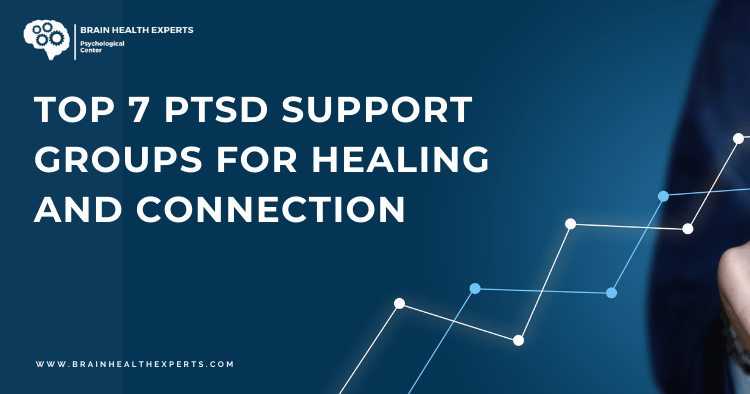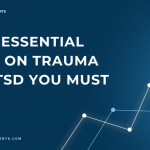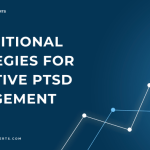Table of Contents
- Understanding PTSD
- Why Support Groups Matter
- Top 7 PTSD Support Groups
- FAQs about PTSD Support Groups
- Final Thoughts
Understanding PTSD
Post-Traumatic Stress Disorder (PTSD) is a mental health condition triggered by experiencing or witnessing a traumatic event. Symptoms can include flashbacks, severe anxiety, nightmares, and uncontrollable thoughts about the event. It’s crucial to understand that PTSD is not a sign of weakness, and seeking help is a vital step towards healing.
According to the National Center for PTSD, about 7-8% of the U.S. population will experience PTSD at some point in their lives. This statistic underscores the importance of finding supportive communities to help navigate the emotional struggles associated with this condition.
Why Support Groups Matter
Support groups provide a safe environment where individuals can share their experiences and feelings without judgment. They offer:
- Connection: Building relationships with others who understand your struggles can be incredibly comforting.
- Shared Experiences: Listening to others’ stories can help you feel less isolated in your journey. For more on the power of positivity in relationships, check out 10 ways positive thinking transforms your relationships.
- Coping Strategies: Members often share tips and techniques that have helped them manage symptoms.
- Encouragement: Support groups can be a source of motivation and hope, reminding you that healing is possible.
Moreover, many support groups are facilitated by professionals who can guide discussions and provide resources, making them a valuable addition to your healing process.
Top 7 PTSD Support Groups
1. The Trauma Recovery Network
The Trauma Recovery Network (TRN) offers peer-support groups designed for those dealing with trauma and PTSD. They provide both in-person and online meetings, ensuring accessibility for everyone. TRN focuses on creating a safe space where individuals can share their stories and experiences.
Features:
- Peer-led groups: Facilitated by trained volunteers who have experienced trauma themselves.
- Resources: Access to educational materials related to trauma and PTSD.
For more information, visit The Trauma Recovery Network.
2. Veterans Affairs (VA) PTSD Support Groups
The VA offers numerous resources specifically designed for veterans suffering from PTSD. Their support groups vary in format, from in-person meetings to online forums, catering to the diverse needs of veterans.
Features:
- Specialized content: Groups often focus on military-related trauma.
- Professional guidance: Led by mental health professionals experienced in PTSD treatment.
Explore more at the VA’s PTSD page.
3. Mental Health America
Mental Health America (MHA) provides a platform to find local support groups and resources for PTSD. They emphasize community involvement and the importance of peer support.
Features:
- Local listings: A directory to find support groups near you.
- Online resources: Articles and tools for coping with PTSD.
Learn more about MHA and available support at Mental Health America.
4. National Alliance on Mental Illness (NAMI)
NAMI offers support groups for individuals with mental health conditions, including PTSD. Their “Peer-to-Peer” program is particularly valuable as it connects participants with others who understand their experiences.
Features:
- Family support: NAMI also provides resources and support for family members of people with PTSD.
- Educational programs: Workshops and seminars on mental health topics.
Find out more at NAMI.
5. Psychology Today Support Groups
Psychology Today hosts an extensive directory of support groups and therapists specializing in PTSD. Their platform allows users to search for groups by location and specific needs.
Features:
- Comprehensive directory: Find local and online support groups tailored to your situation.
- Expert articles: Access to a wealth of information about PTSD and mental health.
Visit Psychology Today to explore your options.
6. Support Groups Central
Support Groups Central offers a range of virtual support groups for various issues, including PTSD. They focus on creating a supportive online community where individuals can connect and share.
Features:
- Convenient online format: Join from the comfort of your home.
- Diverse topics: Groups focused on different aspects of PTSD, including childhood trauma and military experiences.
Check out Support Groups Central for more information.
7. 7 Cups of Tea
7 Cups of Tea is an online platform offering free emotional support through chat and support groups. They have dedicated sections for PTSD and trauma, providing a safe space for individuals to connect and share experiences.
Features:
- Anonymous support: Engage without revealing your identity if you choose.
- Professional listeners: Trained volunteers are available for immediate support.
Explore 7 Cups at 7 Cups of Tea.
FAQs about PTSD Support Groups
1. Are support groups effective for PTSD?
Yes, many individuals find support groups beneficial for emotional healing and gaining coping strategies. Sharing experiences with others who understand can foster a sense of belonging and encourage recovery. For techniques on reducing stress, consider checking out 10 effective stress management strategies.
2. How do I find a support group near me?
You can search online directories such as NAMI or Mental Health America to find local support groups. Many groups also offer virtual meetings.
3. Do I need to pay to join a support group?
While some support groups may have a fee, many are free, especially those offered through non-profit organizations. Always check with the group for any associated costs.
4. What should I expect in a support group?
Expect a welcoming environment where participants share their stories and feelings. Discussions are typically guided by a facilitator to ensure everyone has a chance to contribute. Confidentiality is often emphasized to create trust among members.
Final Thoughts
Finding the right PTSD support group can be a transformative step in your healing journey. Whether you choose an in-person or online group, the connections you make can provide invaluable support and understanding. Remember, you are not alone in this struggle, and reaching out for help is a courageous act that can lead to profound healing and growth. If you or someone you know is struggling with PTSD, consider exploring one of the groups listed above. Take that first step towards connection and recovery today!
For more insights on emotional well-being, don’t miss our article on 10 ways positive thinking boosts emotional well-being.





